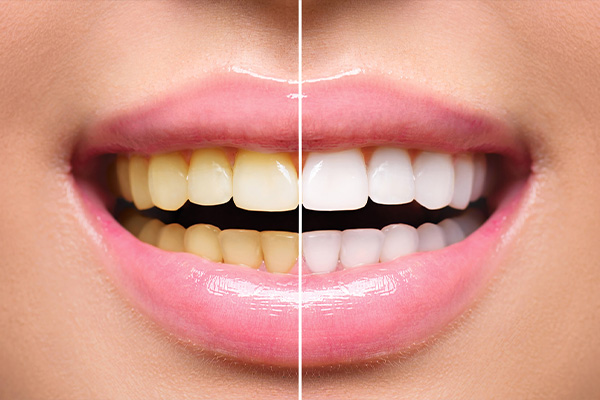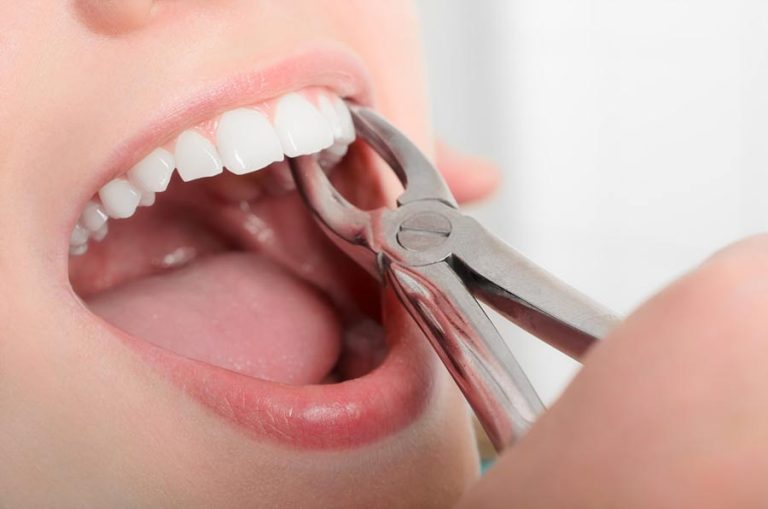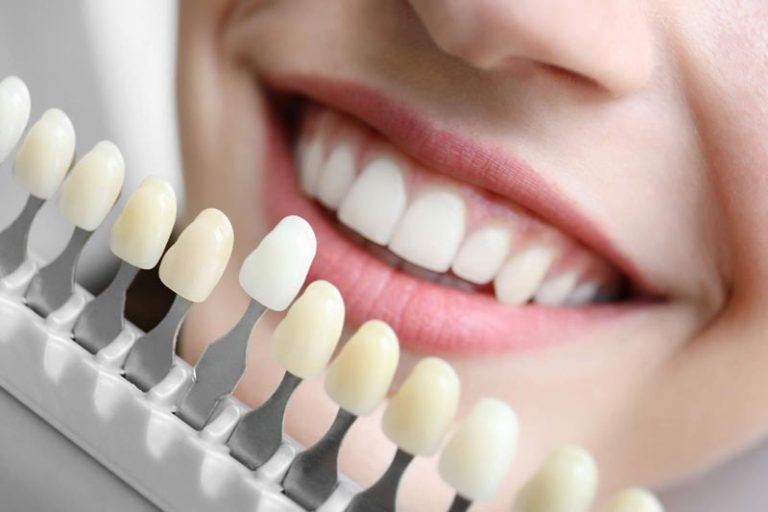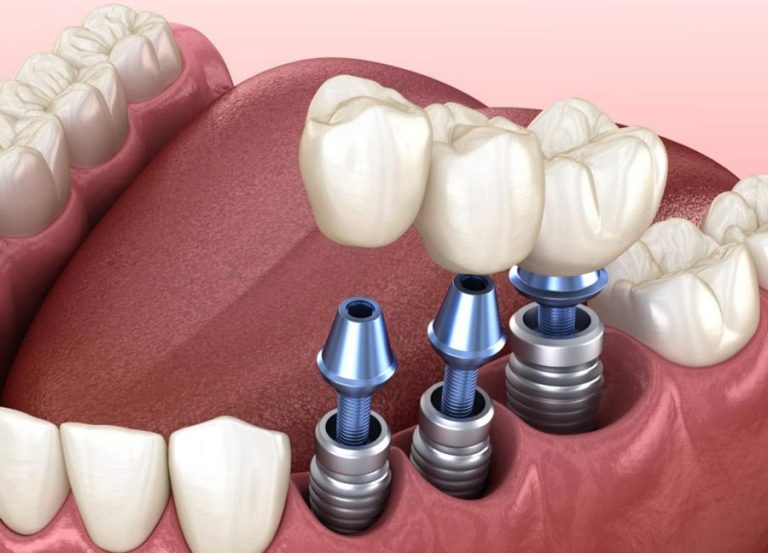The Underlying Causes Teeth discoloration is a common dental concern that affects many individuals, impacting not just the aesthetics of your smile, but also your oral health. In this detailed guide, we will check the various factors that lead to tooth discoloration. We will also offer some insights and solutions to help you maintain bright and healthy teeth and a beautiful smile.
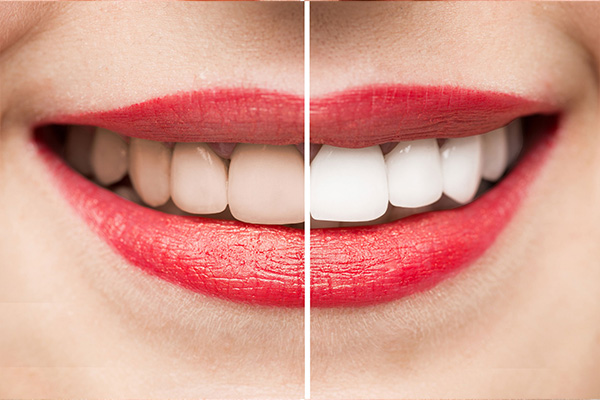
The Significant Role of Diet in Teeth Color
Your dietary choices have a deep impact on the color of your tooth. Beverages such as coffee, tea, and red wine can lead to noticeable staining. So, the food and drinks you choose, greatly affect the color of your tooth, because these drinks contain strong color pigments, known as chromogens, that stick to the tooth enamel, the hard outer surface of your teeth. Also, certain foods with strong colorations, such as berries, soy sauce, and tomato sauce, can cause teeth staining. It’s not just about the color of these foods and drinks; their acid can weaken your tooth’s outer layer and show the yellower part underneath. This will make your tooth more likely to get stained.
Tooth Discoloration Causes
- Using tobacco is a major reason for tooth getting stained
The use of tobacco products, like cigarettes, is a significant contributor to teeth discoloration. Tobacco contains tar and nicotine, which are two substances that cause stubborn stains on your tooth. When nicotine meets oxygen, it turns yellow and can deeply stain your teeth. Regular tobacco usage not only discolors the tooth but also increases the risk of gum disease and oral cancer. You should consider it as a major concern for oral health and consider quitting or limiting tobacco use.
- The Importance of Dental Cleanliness
Maintaining good dental cleanliness is essential in preventing tooth discoloration. Brushing and flossing regularly helps get rid of plaque and tartar, which can hold substances that stain tooth. Ignoring proper oral care can lead to the growth of these substances, and will result in yellow or brown stains. Additionally, using an antibacterial mouthwash can help you kill bacteria and keep your mouth fresh. Moreover, routine dental check-ups and professional cleanings are very important in maintaining your teeth’s natural color.
- Medical Factors and Medications Influencing Tooth Color
Using some kinds of medicines and certain medical conditions can lead to tooth discoloration. Certain diseases that influence the enamel and dentin, which are the key parts of your tooth, can change their color. Treatments like chemotherapy and radiation, particularly for head and neck cancers, can also affect tooth color. It is sometimes regarded as a side effect of certain medications, including antihistamines, antipsychotics, and blood pressure drugs. Discussing these potential side effects with your doctor and dentist is crucial for maintaining your oral and overal health.
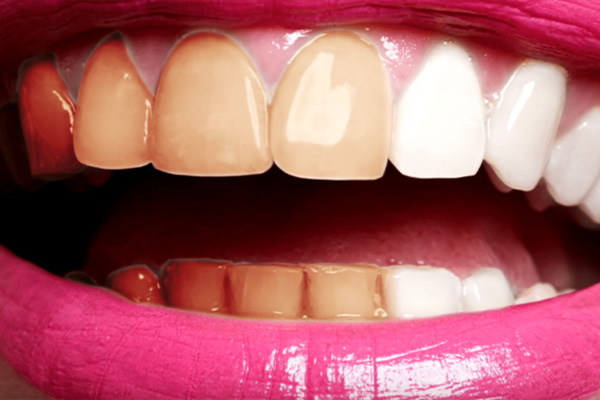
- Dental Materials and Their Impact on Tooth Color
Some dental materials, like amalgam restorations, can affect the color of your teeth. Amalgam contains silver sulfide and can give your teeth a gray shade. With advancements in dental materials, there are now more options available that match the natural color of your tooth, such as composite resins and ceramics. To find the best materials for your dental work, without risking your tooth color, discuss with our dentists. They will help you to find the best way for both the health and appearance of your tooth and smile.
- Tooth Color Changed by Aging
As we grow older, it’s natural for our teeth to change color. Over time, the enamel wears away, showing the dentin underneath, which is more yellow. Eating acidic foods and drinks and taking certain medicines can accelerate this process. However, by sticking to positive oral hygiene habits, like regular brushing, flossing, dental check-up and cleanings, you can ensure your teeth shine white and bright for a much longer time.
- Genetic Factors in Tooth Color Differences
Just like skin and hair color, the natural color of your tooth can vary significantly from person to person due to genetic factors. Some people naturally have brighter or thicker enamel, while others may have teeth that are more yellow or more willing to discoloration. Understanding that genetics play a great role in tooth color can help you set realistic prospects for teeth whitening and other cosmetic dental procedures in North York.
- Environmental Factors and Excessive Fluoride
Environmental factors, like being in the exposure to too much fluoride, can cause a type of staining called dental fluorosis. This condition is often seen in areas with high natural fluoride levels in the water or from the misuse of dental products that contain lots of fluoride. Dental fluorosis usually shows up as white lines or spots on the teeth, and in serious cases, it can cause brown marks. Luckily, these marks can be removed by various cost-effective cosmetic treatments, such as teeth whitening, dental bonding and dental veneers.
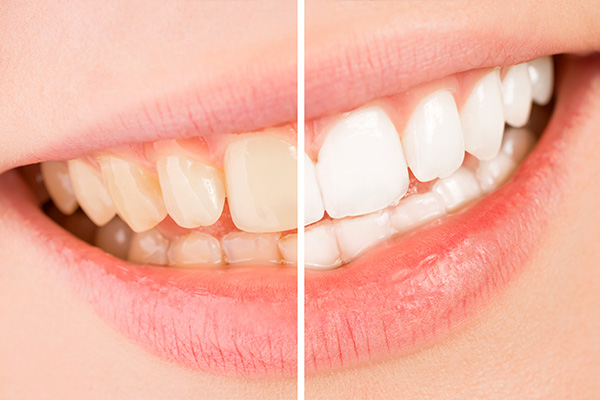
Trauma and Its Impact on Teeth Color
If children hurt their tooth, especially when they are still growing, it can cause discoloration. A fall or hit to the mouth can harm the teeth that are still forming, making them look discolored. In adults, trauma can lead to internal bleeding within the tooth, resulting in a gray or black discoloration. After any injury to the mouth, it’s important to get dental care quickly to deal with problems and avoid dental discoloration.
The Effect of Tooth Grinding on Enamel
Tooth grinding can lead to teeth discoloration too. Continuous grinding can wear down the enamel, exposing the dentin beneath, which is darker in color. This can give the teeth a yellow or dull appearance. At first, you should find the problem caused by tooth grinding, like stress or twisted tooth, then using protective gear like night guards can help reduce you to reduce it.
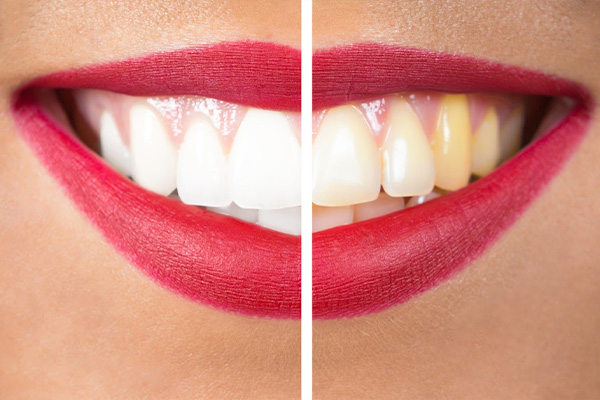
Preventing and Treating Teeth Discoloration
Things You Need to Know about Preventing and Treating Teeth Discoloration
Preventing teeth discoloration involves a combination of lifestyle changes and good oral care. Less usage of foods and drinks that stain your tooth, stopping tobacco use, and keeping up with good oral cleanliness are important ways to prevent discoloration. Regular dental check-ups and cleanings are also crucial in keeping your tooth bright and healthy. For the ones who already have discoloration, there are some treatment options available, including professional tooth whitening and dental veneers. You can use our free consultation meeting with our dental professionals to determine the most suitable treatment. You should first find the cause of discoloration and the condition of your teeth, then decide what treatment may suit you.
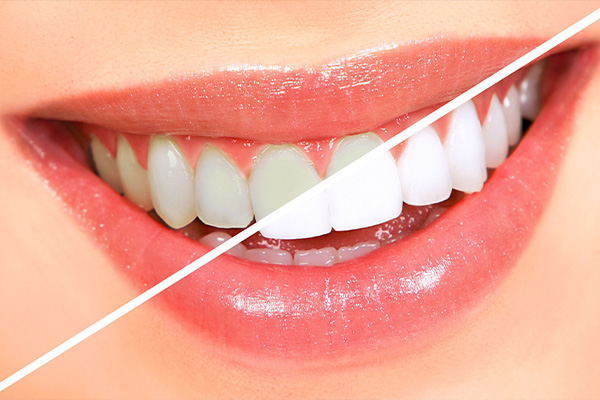
At Walk-in Family dentistry in North York, we are dedicated to helping you achieve bright, healthy, and beautiful teeth, through comprehensive care and personalized treatment options. It’s important to remember that a beautiful smile isn’t just about your beauty; it also shows your overall oral health.
Walk In Family Dental Clinic stands out as the optimal choice for the residents of North York, providing a comprehensive range of dental services. Specializing in dental implants, orthodontics, dentures, tooth extraction, wisdom tooth extraction, root canal therapy, dental fillings, and dental crowns, the clinic ensures top-notch care for all your dental needs. With a commitment to excellence and a focus on patient well-being, Walk In Family Dental Clinic is dedicated to delivering the highest quality dental care in North York.
For more information about our various teeth whitening services, call us at Walk-in Family Dental.
FAQ
What is the most common cause of tooth discoloration?
There are a few common causes of tooth discoloration, but the most frequent culprit is staining from chromogens in certain foods and drinks like coffee, tea, or red wine.
What deficiency causes teeth discoloration?
Deficiencies in certain vitamins can contribute to teeth discoloration. One such deficiency is vitamin B12. Vitamin B12 helps maintain healthy gums and prevents excessive bacteria buildup, which can stain teeth over time.

